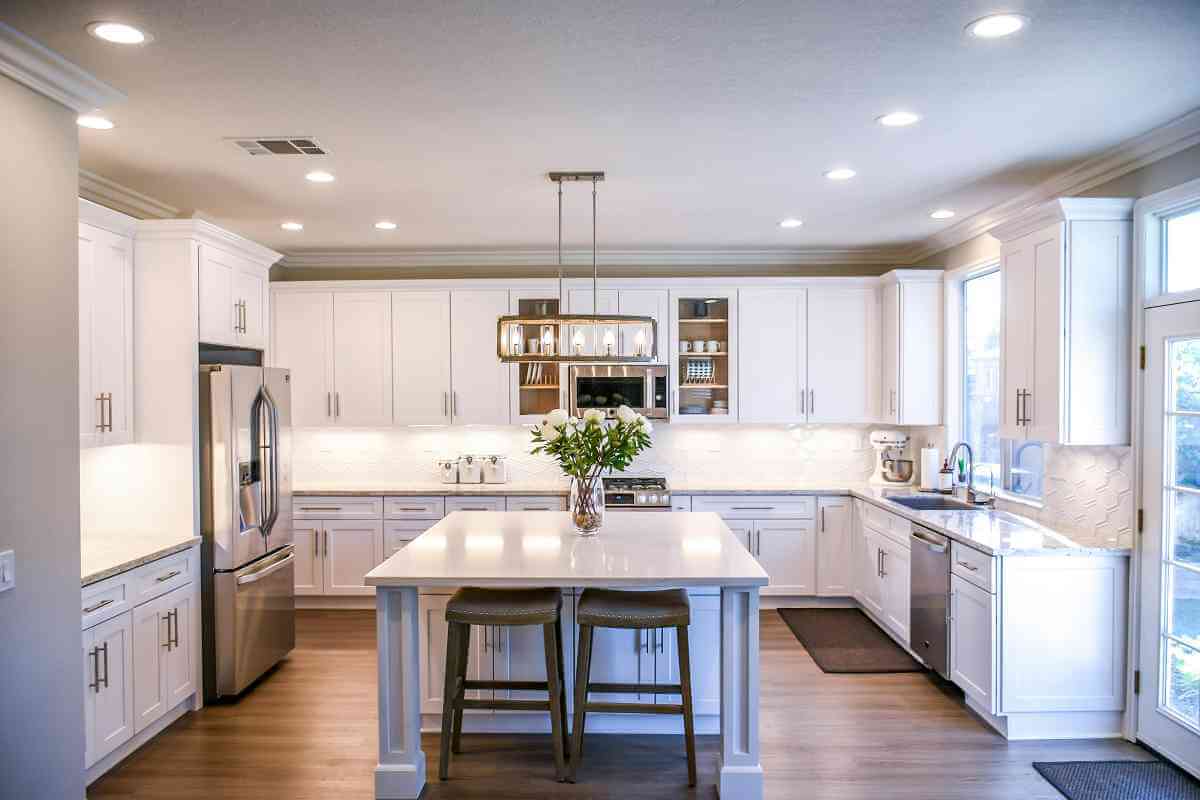With prices to rebuild increasing with inflation, any additions or renovations are crucial to account for, on your policy. Spending money to make your home even better, only to be covered for your pre-renovated home??
Upgrades That May Increase Your Insurance Costs:
Adding Square Footage: More living space means higher replacement costs, leading to higher premiums.
Kitchen or Bathroom Remodels: High-end materials, such as granite, marble, custom cabinetry, etc. increase the home’s value, requiring higher coverage.
Finished Basement: Increases home value but also adds risk for water damage or flooding, potentially raising premiums.
Swimming Pool or Hot Tub: Increases liability risks, often requiring additional liability coverage.
Home Office or Business Use: If you renovate to run a business from home, you may need business insurance or an endorsement.
Upgrades That May Lower Your Insurance Costs:
A new roof can reduce risk of damage, often leading to discounts.
Upgraded electrical & plumbing systems help reduce fire and water damage risks, potentially lowering premiums.
Security system installation Some insurers offer discounts for monitored alarms, smart locks, and surveillance cameras.
Storm-resistant features can lower premiums, especially in storm-prone areas.
Increased home value means higher cost of rebuilding. Structural changes can add value, as well.
Major renovations (like adding a room, upgrading the kitchen, or finishing a basement) can increase your home’s value.
If your coverage isn’t updated, you might not have enough insurance to rebuild after a disaster.
When deciding between DIY and hiring professionals, keep these things in mind:
If you DIY a renovation and it leads to damage (like faulty wiring causing a fire), your insurer likely won't cover it.
Using licensed contractors ensures the work is done correctly and helps with claims, in case something goes wrong.
Adding an extension, pool, or new roof might require additional coverage.
Detached structures (like garages or guesthouses) may need separate policies.
If workers, contractors, or even friends helping with renovations get injured on your property, you could be liable, though many contractors obtain their own coverage; it's always a good idea to make sure they've done so.
If renovations force you to vacate your home for 30+ days, some policies might reduce or cancel coverage.
Solution: Check with your insurer to see if you need a vacant home endorsement.
It's also important to note that if the renovations aren't up to code, the claim will likely be denied.
DIY home renovations can be rewarding, but they also come with several potential downfalls:
Without proper knowledge, you risk making costly mistakes in plumbing, electrical work, or structural changes.
Using power tools, handling electrical wiring, or working at heights can lead to serious injuries if not done correctly.
While DIY may seem cheaper, unexpected expenses like fixing mistakes, buying specialized tools, or hiring a professional to redo the work can add up.
Without professional skills, the final result may not look as polished, affecting your home’s aesthetics and value.
Mistakes in load-bearing walls, flooring, or roofing could compromise the integrity of your home.
Home inspectors and buyers may be wary of DIY work, leading to lower offers or requests for professional corrections
Painting is a relatively easy and cost-effective project with minimal risk.
Peel-and-stick or simple tile installations can be manageable with the right tools.
Replacing cabinet handles, faucets, or light fixtures is simple with basic skills.
Planting trees, building garden beds, and minor landscaping projects can be fun and DIY-friendly.
Floating floors like laminate or vinyl plank are easy to install with patience.
Building shelves, minor furniture projects, or simple trim work is a good DIY challenge.
Adding weather stripping or caulking to improve insulation is low-risk and budget-friendly.
There are some renovations that really are better left to the professionals:
Mistakes can cause fires, electrical shocks, or code violations. Always hire a licensed electrician.
While small fixes are okay, major plumbing projects (moving pipes, installing new systems) require expertise.
Removing walls, altering foundations, or adding rooms can compromise your home’s safety if done incorrectly.
Working at heights and ensuring proper sealing requires professional skills.
Heating and cooling systems involve complex wiring, gas lines, and regulations.
While backsplashes are manageable, full bathroom or shower tiling requires precision to prevent leaks.
If your project requires a permit, it’s best to hire a pro to ensure it is up to code.
If you're unsure, a good rule of thumb is: If the project affects your home's structure, safety, or resale value, hire a pro. If it's cosmetic and manageable with research, it might be okay to DIY.
If you have any questions or would like us to quote out your policy with the renovations accounted for, please call the office at 720.335.6872.
